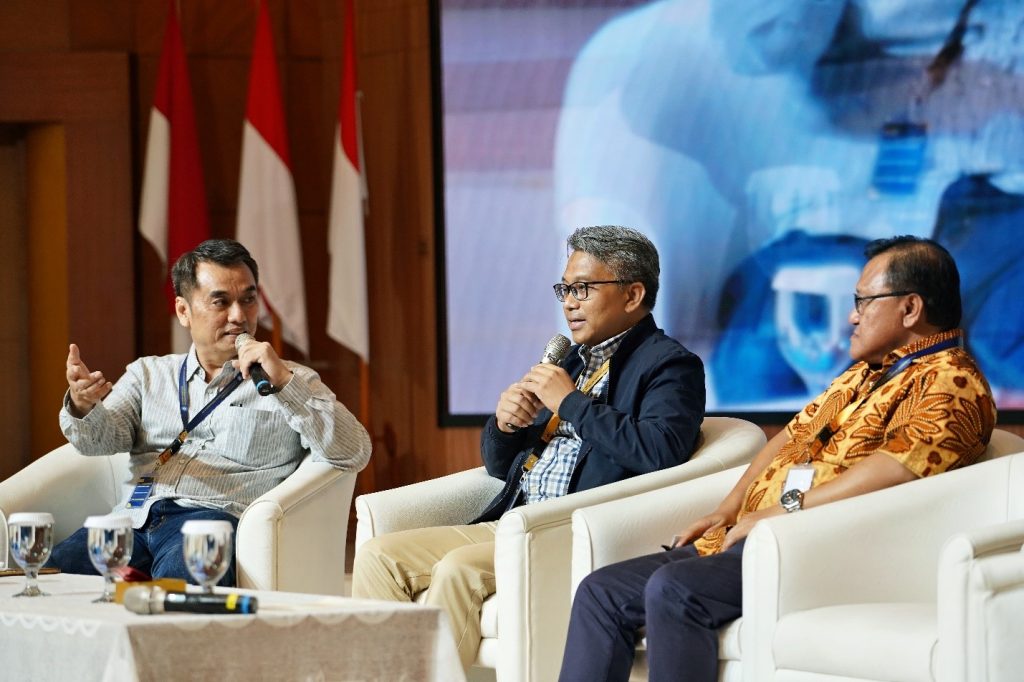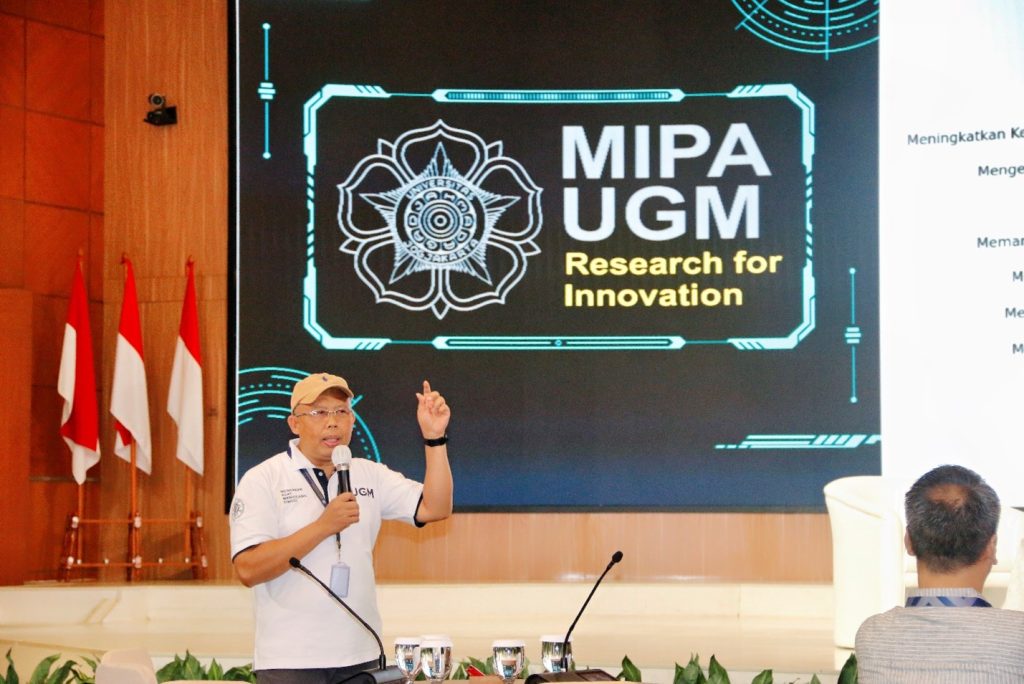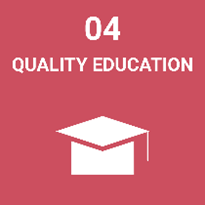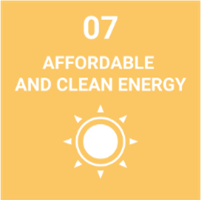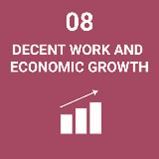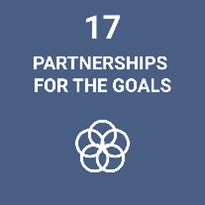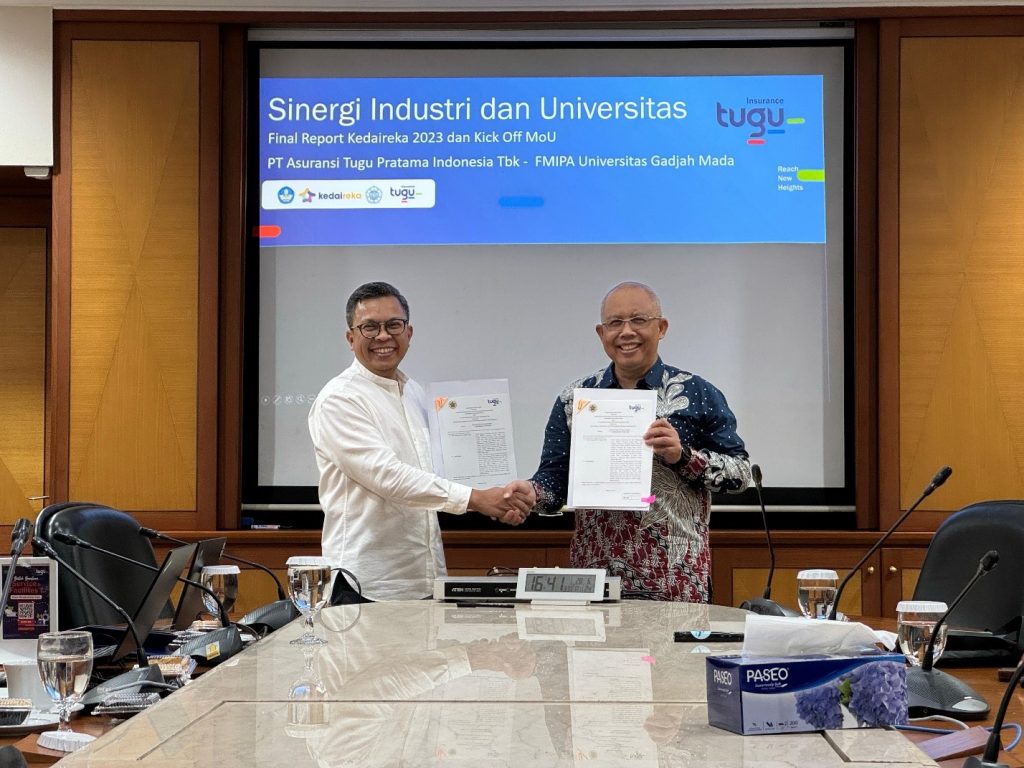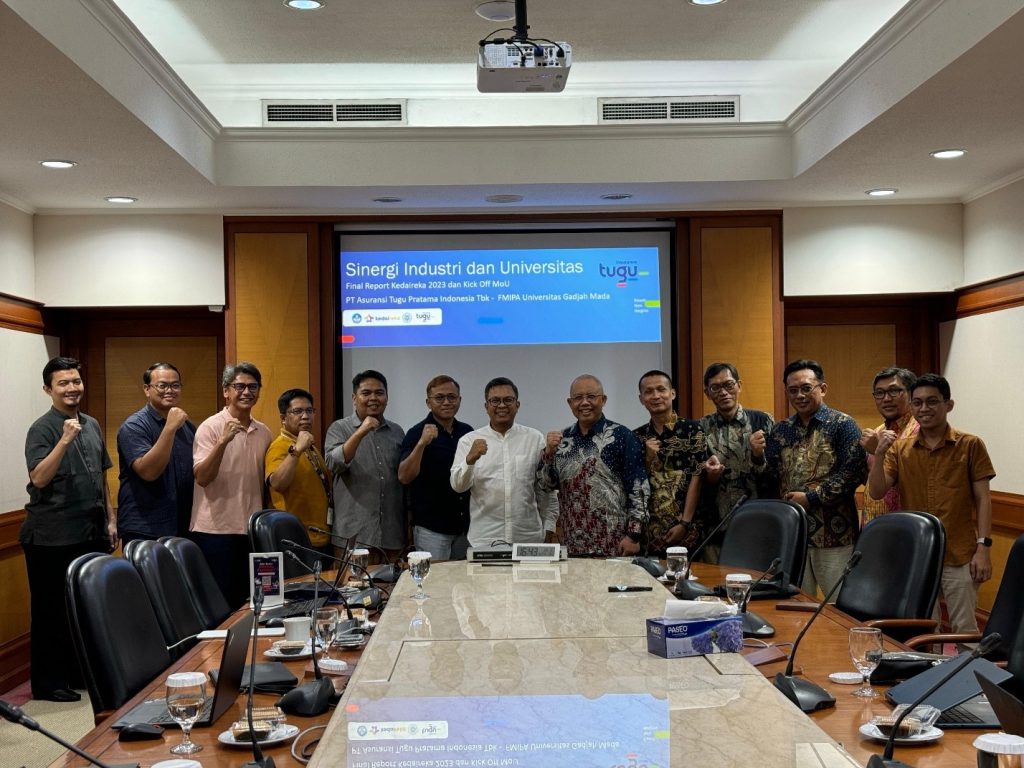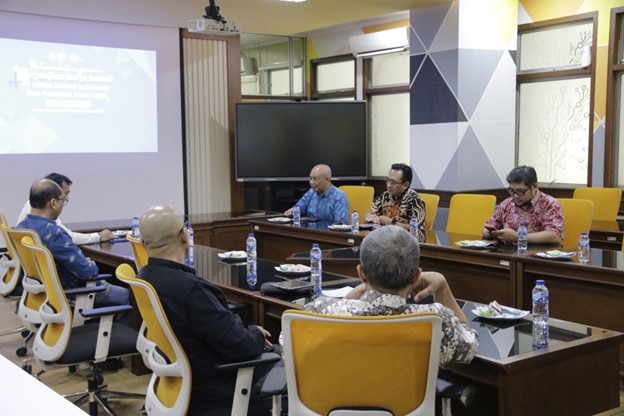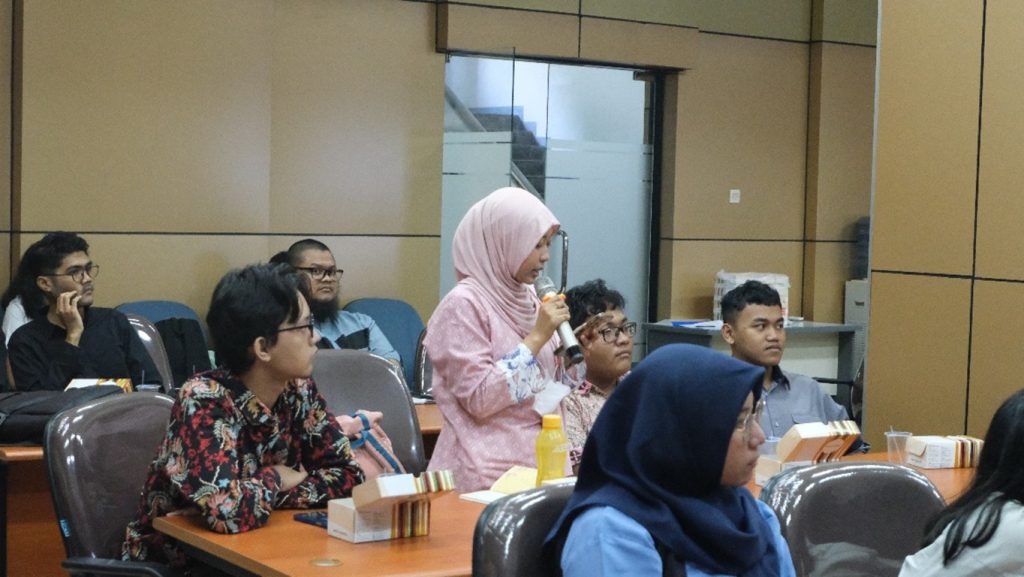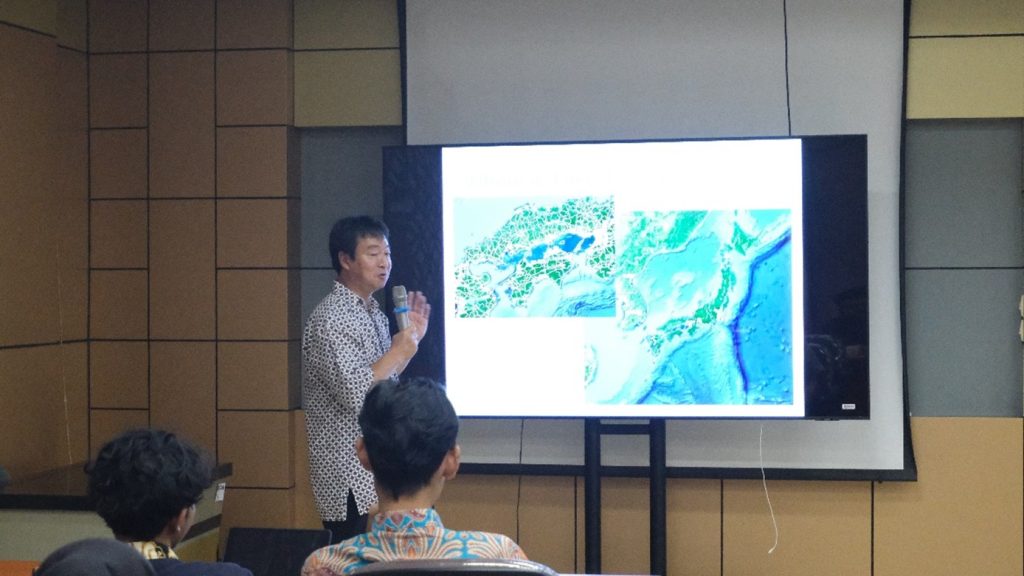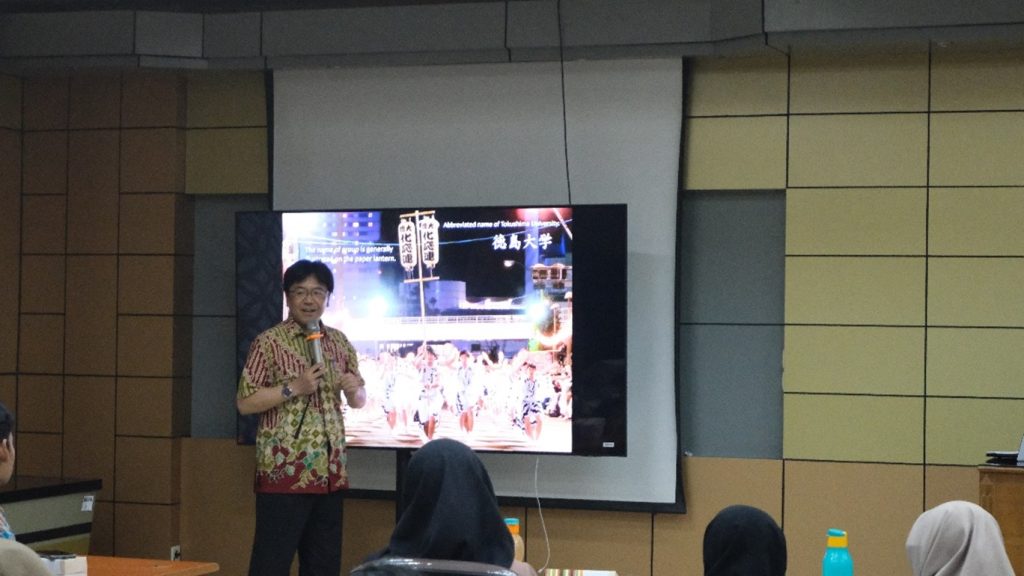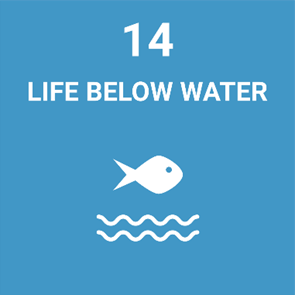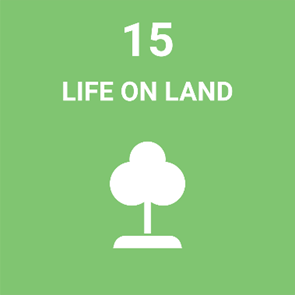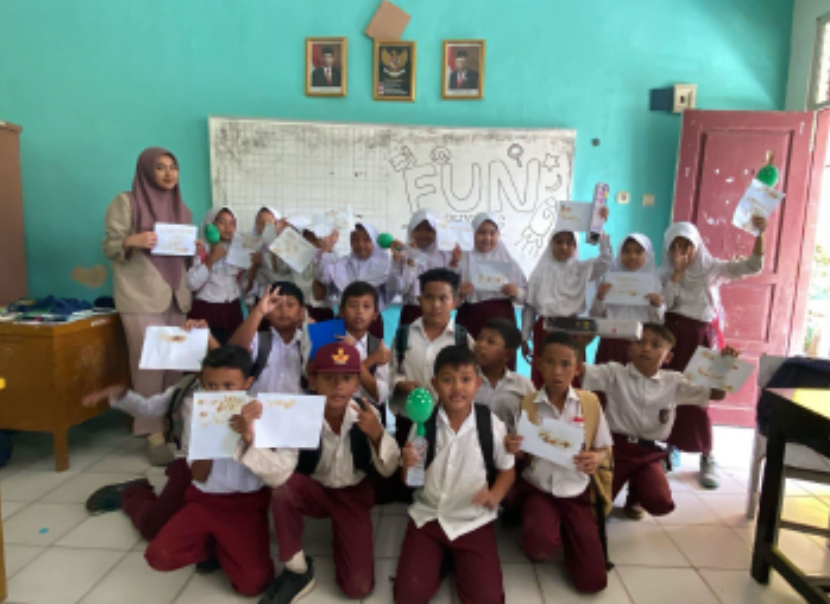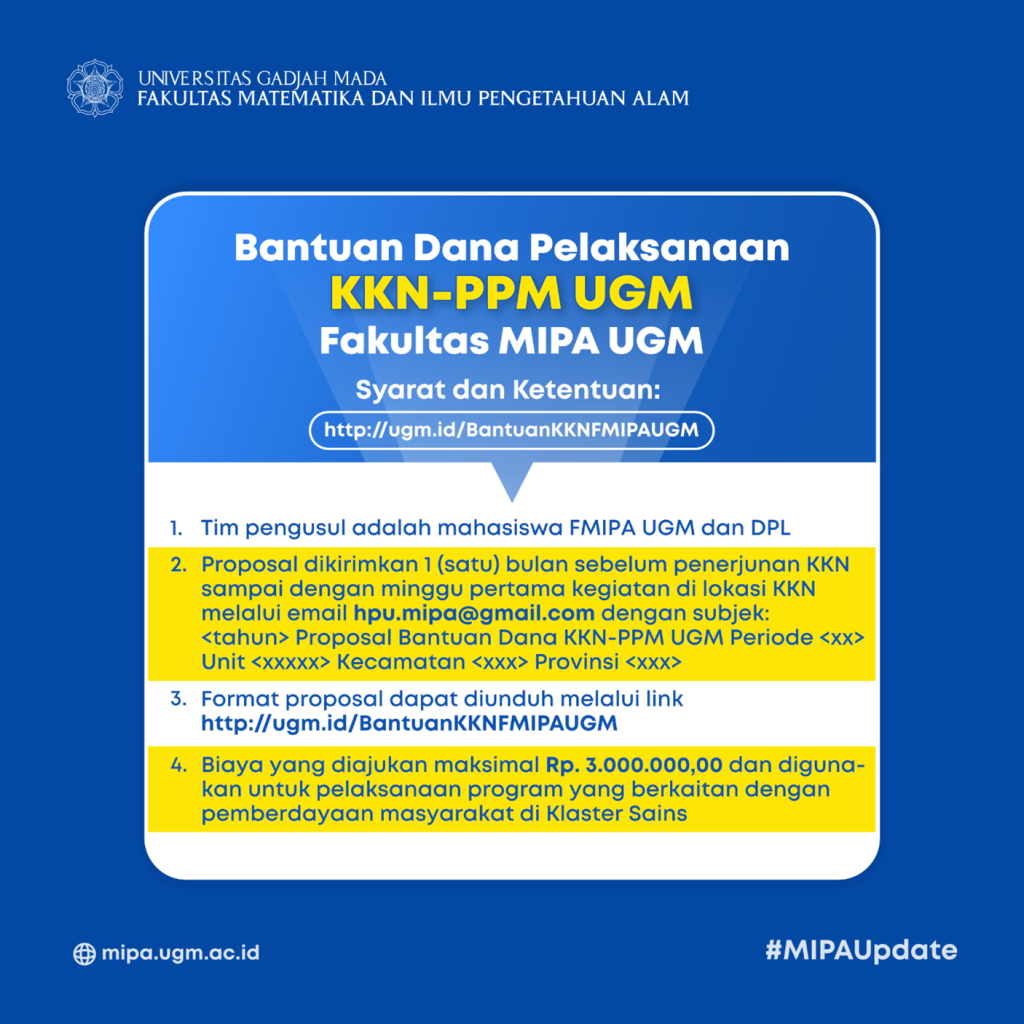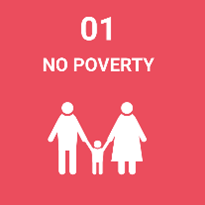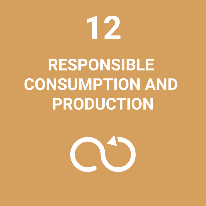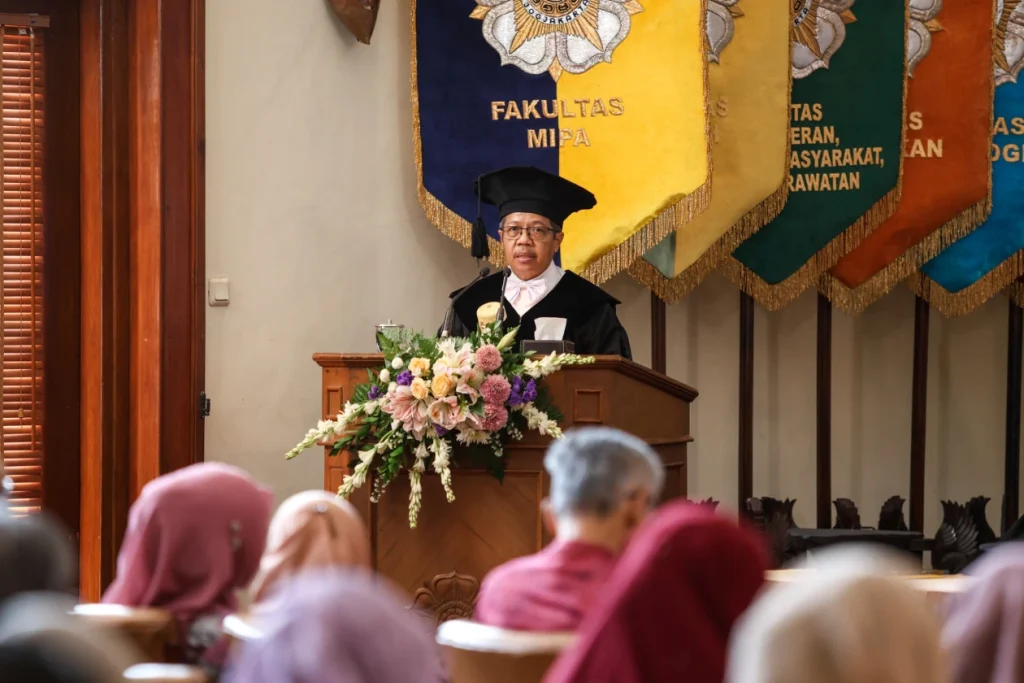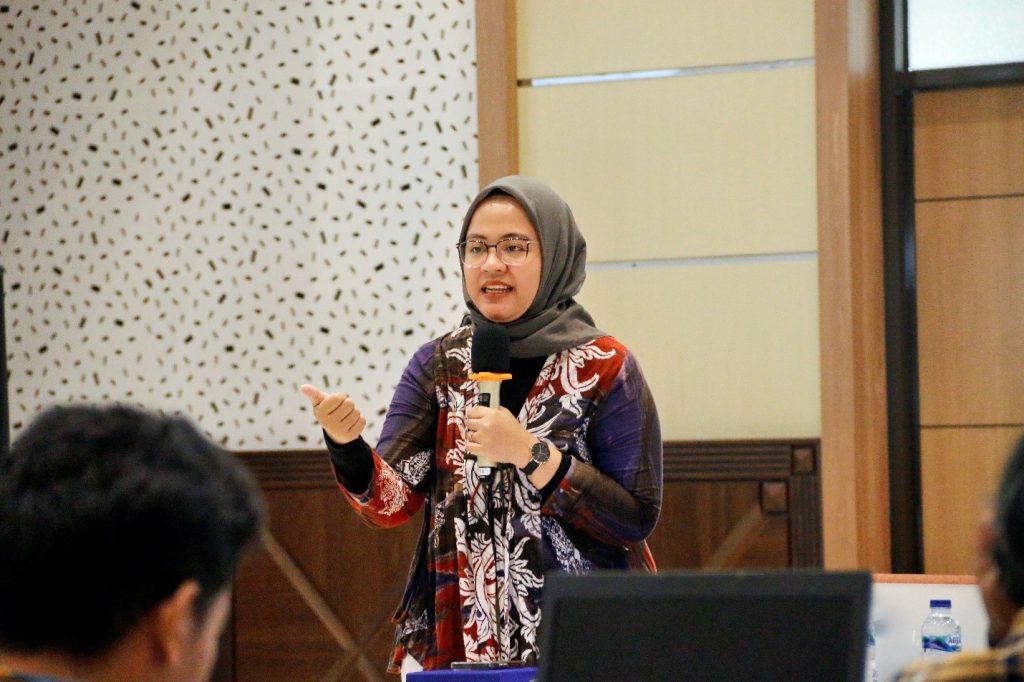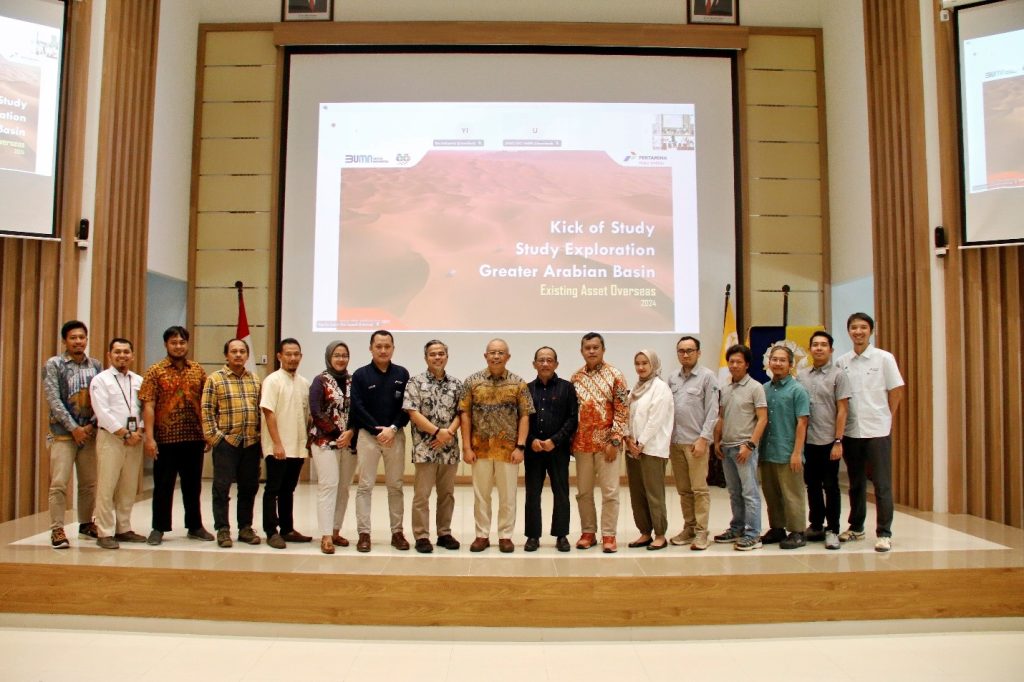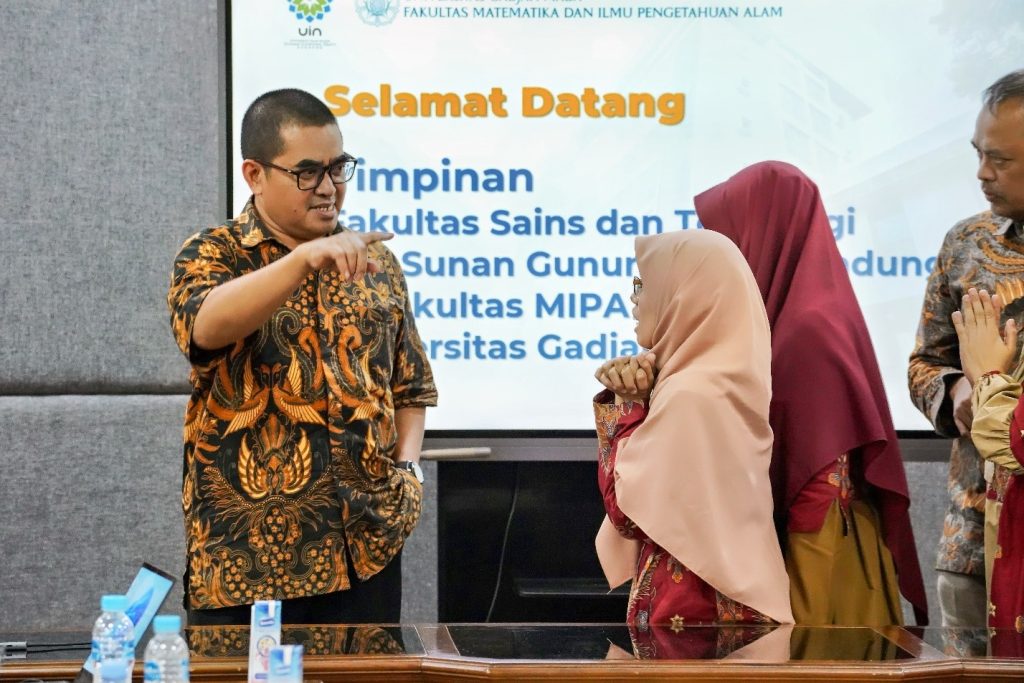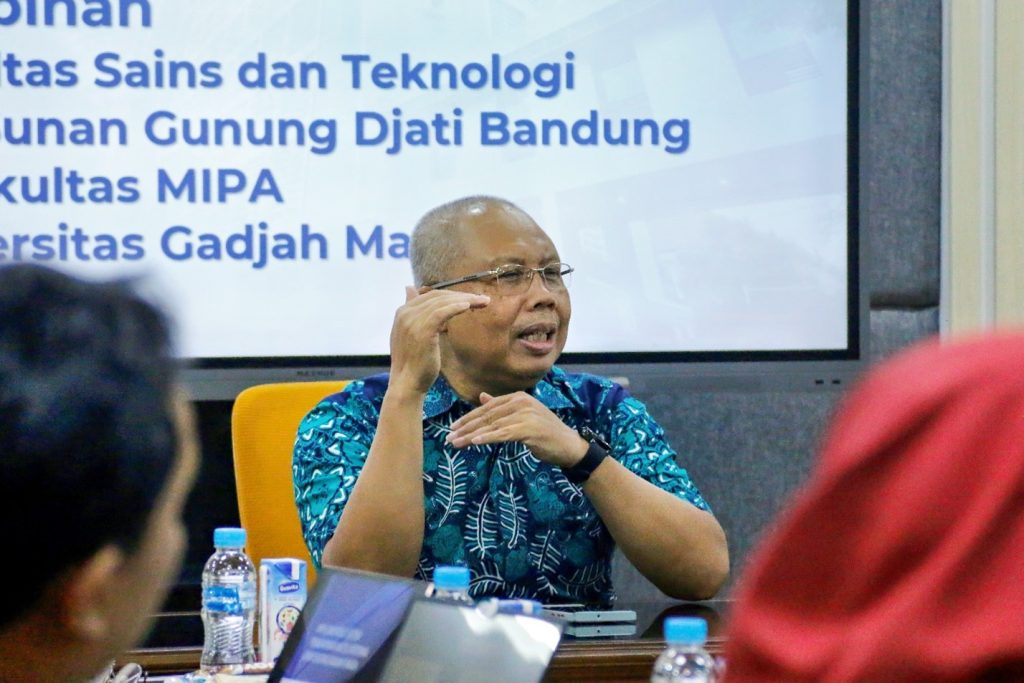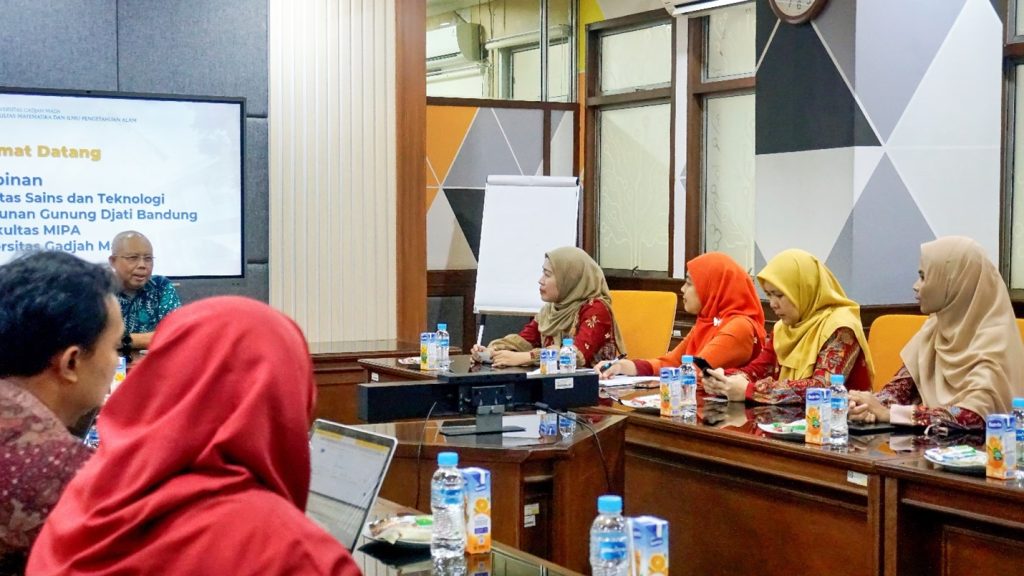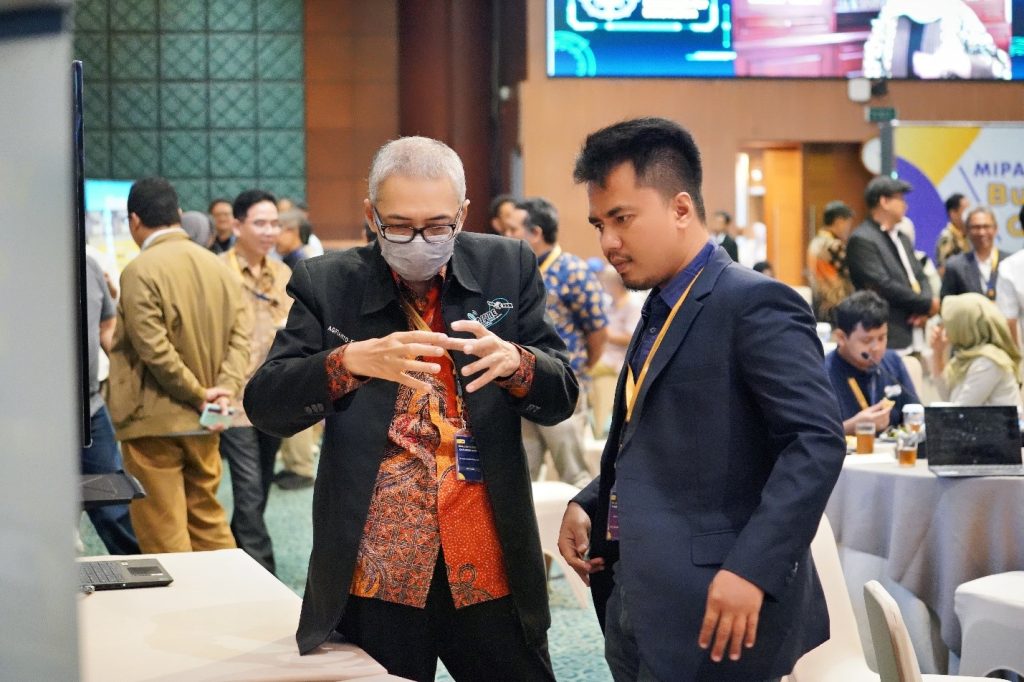
Perkuat Kolaborasi Riset Inovatif, FMIPA UGM Hadirkan Pimpinan dan Praktisi Industri pada Acara MIPA Business Gathering
Lebih dari 100 tamu undangan yang berasal dari berbagai sektor industri menghadiri acara MIPA Business Gathering pada Sabtu, 29 Juni 2024 di Gedung Utama PT. PLN Persero, Jakarta. Acara yang diselenggarakan oleh FMIPA UGM tersebut bertujuan dalam memberikan ruang diskusi dalam memperkuat kolaborasi riset inovatif dengan keterlibatan antara akademisi dengan praktisi serta perguruan tinggi dengan industri.
Tamu undangan yang juga merupakan mitra dari FMIPA UGM tersebut antara lain Pertamina, PLN, Kementerian ESDM, GO Well Oilfield Technology, PT. Matur Nuwun Nusantara, Business Innovation Center dan industri lainnya.
Acara dibuka oleh Daniel Oscar Baskoro, M.Sc. selaku Chief Project Officer Smart City Otorita Ibu Kota Nusantara sekaligus Ketua Keluarga Alumni FMIPA UGM (Kamipagama) dan Alois Wisnuhardana selaku Senior Executive Vice President Corporate Secretary PT PLN Persero.
“Bapak dan Ibu dosen berperan penting dalam membuat kajian riset untuk industri. Kemudian, kami ingin menekankan bahwa mahasiswa memiliki peran penting dalam kegiatan ini. Jadi, mahasiswa bisa berkontribusi di dalam riset,” papar Oscar.
Selain itu, terdapat laporan kegiatan yang disampaikan oleh ketua pelaksana acara dari Business Gathering Dr. Fajar Adi Kusumo, M.Si.
“Acara MIPA Business Gathering ini kami adakan dalam rangka membuka dan mempererat silahturami antara kampus, dunia usaha, dan dunia industri yang bertujuan dalam memperkenalkan isu-isu di kampus yang membutuhkan sinergi dan kolaborasi antara kampus, dunia usaha, dan dunia industri. Kemudian, kami juga ingin memperkenalkan produk hasil inovasi yang dapat mendukung industri dan nantinya akan dihilirasi dan bermanfaat untuk sektor pemerintah, industri, dan masyarakat,” kata Dr. Fajar.
Acara terdiri atas diskusi yang terbagi dalam 2 panel, business gathering, dan paparan mitra industri dengan tema Why Innovation is a survival Issue (for Indonesia too). Pada panel 1, tema yang diangkat adalah Potensi Kerja Sama Departemen FMIPA UGM yang langsung dibuka dan dimoderatori oleh Dekan FMIPA UGM. Dalam hal ini, masing-masing ketua departemen menyampaikan paparan mengenai potensi kerja sama yang dapat dilakukan seperti riset nanomaterial dan produk seismograf dari fisika, riset kimia industri serta pengelolaan limbah kimia dari kimia, riset aplikasi Tani Pintar dari ilmu komputer dan elektronika instrumentasi, dan riset tentang kriptografi dari matematika.
Kegiatan MIPA Business Gathering yang dilaksanakan oleh FMIPA UGM diharapkan mendorong kolaborasi antara perguruan tinggi dan industri yang berdampak dalam mendukung penguatan ekonomi Indonesia. Acara ini turut menjadi cerminan dari SDGs di poin 4 yaitu Pendidikan Berkualitas dalam pendidikan untuk keberlanjutan melalui peluang riset dan studi, poin 7 yaitu Energi Bersih dan Terjangkau melalui riset energi bersih, poin 8 yaitu Pekerjaan Layak dan Pertumbuhan Ekonomi dalam ketenagakerjaan melalui peningkatan employability mahasiswa di dunia industri, dan poin 17 yaitu Kemitraan untuk Mencapai Tujuan dalam mendorong inovasi dan kemitraan melalui kolaborasi antara perguruan tinggi dan industri.
Kontributor: Febriska Noor Fitriana
Dokumentasi: Hero Prakosa Wibowo Priyanto
